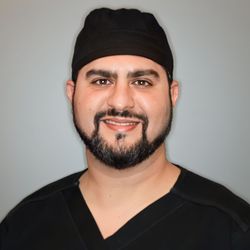Periodontal Surgery
Periodontal surgery, also known as gum surgery, is a specialized dental procedure that focuses on treating various conditions related to the gums. It involves techniques aimed at correcting and repairing damage caused by periodontal disease. This disease affects the supporting structures of the teeth, including the gums and bones.
The goal of periodontal surgery is to eliminate infection-causing bacteria while promoting gum reattachment and regeneration of supportive tissues. By addressing these issues through surgical intervention, patients can experience improved oral health, reduced symptoms such as bleeding or swollen gums, and even enhanced aesthetics with a more pleasing smile.
The Different Types of Periodontal Surgery
Periodontal surgery is a common procedure that is performed to treat gum disease and restore oral health. There are several different types of periodontal surgery, each with its own purpose and benefits.
One type of periodontal surgery is flap surgery. During this procedure, the gums are lifted back so that the dentist can access the roots of the teeth for cleaning or repair. Flap surgery can help to eliminate deep pockets in the gums, reduce inflammation, and promote gum tissue regeneration.
Gum grafts are another form of periodontal surgery used to treat receding gums. In this procedure, healthy gum tissue is taken from another area of your mouth or a donor source and placed over exposed tooth roots. This helps to protect against further recession while improving aesthetics.
Bone grafting may also be necessary in some cases where severe bone loss has occurred due to advanced gum disease. The surgeon will place small pieces of synthetic bone or donated bone material into areas where there is significant bone loss, promoting new bone growth.
What to Expect After Periodontal Surgery?
After undergoing periodontal surgery, it's important to have a clear understanding of what to expect during the recovery process. While each individual may experience slightly different outcomes, there are some general guidelines to keep in mind.
In the immediate aftermath of the procedure, you may feel some discomfort and swelling around the treated area. This is completely normal and can typically be managed with over-the-counter pain medications prescribed by your dentist or periodontist.
You may also be advised to follow a soft food diet for a few days or weeks following surgery. This is to minimize any stress on the surgical site and allow for optimal healing. It's essential to avoid chewing on hard or sticky foods that could potentially disrupt stitches or cause further irritation.
It's common for patients to notice some bleeding during brushing or flossing in the first few days post-surgery. However, excessive bleeding should be reported to your dental professional immediately.
Maintaining good oral hygiene practices is crucial during this time as well. You will likely need specific instructions on how best to clean your teeth without causing harm to the surgical area. Your dentist may recommend using a special mouth rinse or providing you with additional tools such as an antibacterial rinse or interdental brushes.
Follow-up appointments will be scheduled with your dental professional so they can monitor your healing progress and ensure everything is going smoothly. During these visits, any necessary adjustments can be made if required.
Conclusion
Periodontal surgery is a highly effective treatment option for individuals suffering from severe gum disease or other periodontal issues. This surgical procedure aims to restore and improve the health of the gums and supporting structures, helping patients maintain their oral health.
It's important to remember that prevention plays a key role in maintaining good oral hygiene and preventing the need for extensive treatments like periodontal surgery. Regular brushing, flossing, and professional cleanings are essential steps everyone should take to keep their gums healthy.
If you suspect you may be dealing with gum disease or are experiencing any symptoms such as bleeding gums or persistent bad breath, it's crucial to consult with a qualified dentist or periodontist who can evaluate your condition and recommend the most appropriate treatment plan for your needs.
By understanding the importance of periodontal surgery in preserving oral health and following through with proper aftercare measures, individuals can regain their smile while ensuring long-term gum health. Remember that prevention is always better than cure when it comes to maintaining strong teeth and healthy gums!
Wish to learn more? Visit the Periodontal Center of Excellence Dental Implant Center at locations in The Woodlands, TX, or Conroe, TX.
Office Hours
MON - THU7:00 am - 4:00 pm
FRI7:00 am - 12:00 pm
SAT - SUNClosed
Office Hours
MON - TUEBy appointments only
WED7:00 am - 4:00 pm
THU - SUNClosed









